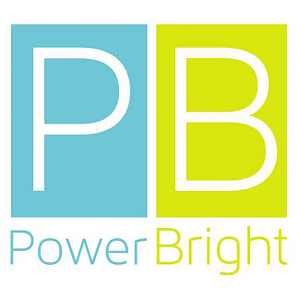In healthcare in Chicago, terminal cleaning of different units is the most essential part in terms of health and safety reasons, it could prevent many infections, the risks of infection are high while at the same time sterility is crucial. This blog post will talk about specific challenges, what they involve as well as cleaning protocols in Healthcare cleaning.
Contents [hide]
Intensive Care Units (ICUs)
Challenges:
High Risk of Infection: This area has patients who are normally immunocompromised or critically ill, hence they are vulnerable to infections.
Continuous Occupancy: ICUs operate throughout day and night, hence patients keep on flowing into such departments giving limited time for proper sanitation.
Sensitive Equipment: ICUs have a range of complicated and delicate medical devices that need careful treatment during sanitization processes.
Cleaning Requirements:
Daily and Terminal Cleaning: Both daily cleaning and terminal cleaning are important. Daily cleaning entails high touch surfaces and patient areas, whereas terminal cleaning is done when a patient is either discharged or transferred, also known as deep cleaning.
Disinfectants: Use hospital-grade disinfectants that are EPA registered and effective against numerous pathogens.
Protocols: Strictly adhere to the sanitation protocols like using PPE by the custodians, having proper ventilation and systematically clean all surfaces, equipment as well as fixtures.

Operating Room Cleaning in Chicago
Terminal Cleaning for Operating Rooms (ORs)
Challenges:
Sterile Environment: So sterile environment should be maintained in OR’s to prevent surgical site infections which requires careful cleaning.
Time Constraints: Quick but thorough cleaning is necessary because ORs have very short intervals between surgeries.
Specialized Equipment: Surgical instruments and equipment require delicate sterilization processes after being cleaned.
Requirements for Cleaning:
Cleaning between cases: The OR must be cleaned and disinfected after each surgical procedure. This will include the cleaning of all surfaces, equipment and floor areas.
Terminal cleaning: At the end of each day, a comprehensive terminal cleaning is conducted in the OR to ensure all surfaces are sanitized including all equipment.
Checklists and protocols: Detailed checklists should be used and SOPs followed so that no area is left out, this includes the cleaning lights, air vents walls and floors.

Terminal Room Cleaning in Chicago
Terminal Room Cleaning for Isolation Rooms
Challenges:
Pathogen containment: In terminal rooms cleaning with patients suffering from highly infectious diseases require people to follow strict precautions to prevent transmission of infections by contact.
Airborne precautions: Some isolation rooms need negative pressure to stop airborne pathogens from spreading around them.
Cleaning Requirements:
PPE’s & Precautions: Janitors must wear proper PPE’s and also follow strict procedures for avoiding cross-contamination.
Thorough disinfection: All surfaces must be carefully disinfected using appropriate agents even as regards walls, floors and high-touch areas.
Air filtration systems: Ensure that air filtration systems are kept clean and maintained to support airborne precaution protocols

ICU Cleaning in Chicago
Terminal Cleaning for Neonatal Intensive Care Units (NICUs)
Issues
High vulnerability: Immunity of prematurely born or very sick babies in the NICU is extremely weak.
Delicate items: Incubators and other specialized neonatal equipment need to be cleaned with care.
Cleaning Needs
Gentle but Strong Disinfection: Disinfectants that are effective yet friendly to delicate environments should be used. Notwithstanding, one should avoid harmful chemicals towards infants.
Regular Cleaning: All surfaces like incubators, cribs and equipment must be cleaned and disinfected on a regular basis.
Parental Areas: Adequately clean and disinfect areas where parents stay such as lactation rooms and waiting areas.

Terminal Cleaning for Dialysis Units
Terminal Cleaning for Dialysis Units
Challenges:
Bloodborne Pathogens: There is high risk of exposure to bloodborne pathogens during dialysis treatments.
Frequent Use: There is high frequency use of dialysis units by many patients who undergo routine treatment.
Cleaning Requirements:
Surface Disinfection: Clean all surfaces after each patient therapy especially focusing on chairs, machines, and the surrounding area.
Waste Disposal: Safely handle medical waste materials as well as sharps for prevention against contamination.

Hospital Disinfection in Chicago
Conclusion
Each specialized unit in a healthcare facility comes with its own set of cleaning challenges and requirements. Proper sanitation upon completion of service in these areas is vital for infection control and safety of both patients and health care workers in the establishment. For Chicago’s hospital facilities to meet the demanding requirements in such crucial spaces, it is necessary for them to follow strict protocols, employ specified disinfecting agents and constantly train their janitorial staffs .
To any healthcare facility, the first priority is to ensure that ICUs, ORs and NICUs are spotlessly clean and safe. Power Bright does specialized Terminal Cleaning, contact us at (312) 312-7866 or email info@powerbrightcleaning.com for consultation appointments and more information.




